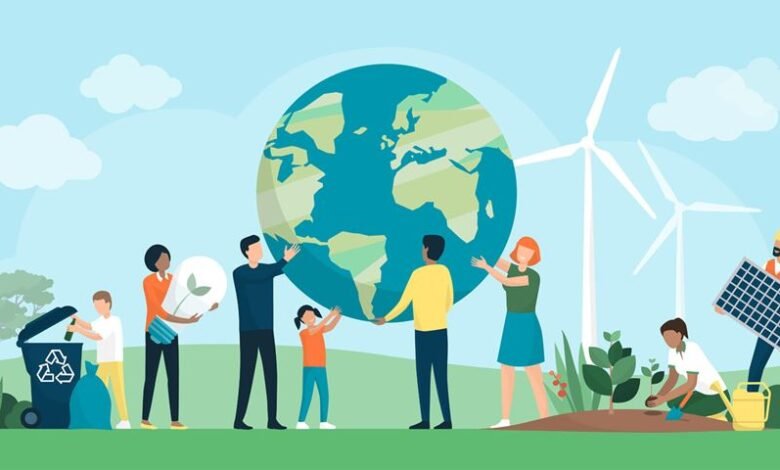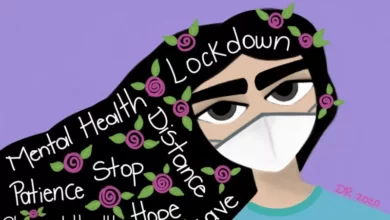Education for Sustainability and Climate Change

Climate change is an urgent and critical issue that is affecting our planet in unprecedented ways. It is a global problem that requires a comprehensive approach to mitigate its impact. Education for sustainability and climate change is a vital component of this approach. It equips individuals with the knowledge and skills to take action and create a more sustainable future. In this article, we will discuss the importance of education for sustainability and climate change, the benefits of sustainable education, the challenges and opportunities it presents, and the sustainable practices that can be incorporated into education.
Introduction to Sustainability and Climate Change
To understand why education for sustainability and climate change is necessary, it is important to understand the meaning of sustainability and climate change. Sustainability refers to the ability to meet the needs of the present without compromising the ability of future generations to meet their own needs. Climate change, on the other hand, refers to the long-term changes in the Earth’s climate, primarily caused by human activities such as burning fossil fuels and deforestation.
The impacts of climate change are widespread, including rising sea levels, extreme weather events, loss of biodiversity, and food and water scarcity. The effects of climate change are particularly felt by vulnerable populations, such as low-income communities and indigenous people.
The Role of Education in Sustainability and Climate Change
Education is an essential component in the fight against climate change. It is through education that individuals can learn about the science behind climate change, its impacts, and how to take action. Education for sustainability and climate change involves teaching skills, knowledge, and values that are essential for creating a more sustainable future.
Why Education is Important for Sustainability and Climate Change
Education is critical in addressing climate change because it equips individuals with the knowledge and skills needed to address environmental, social, and economic challenges. It helps individuals understand the scientific basis of climate change and its impacts, as well as the economic, social, and political dimensions of sustainability. Education for sustainability and climate change also promotes critical thinking and problem-solving skills, enabling individuals to find solutions to complex environmental challenges.
Integrating Climate Change into School Curriculum
One way to promote education for sustainability and climate change is by integrating climate change into the school curriculum. This includes teaching the scientific basis of climate change, its impacts, and how individuals can take action to mitigate its effects. It also involves exploring the social and economic dimensions of sustainability, such as the impacts of climate change on different communities and the role of businesses in promoting sustainable practices.
Developing a Comprehensive Sustainability Curriculum
Developing a comprehensive sustainability curriculum involves incorporating sustainability into all aspects of education, including teaching materials, methods, and assessment. It involves designing courses that promote critical thinking, problem-solving, and collaboration skills, and incorporating sustainable practices into school operations.
The Benefits of Sustainability Education
Sustainability education offers numerous benefits, including:
Promoting Environmental Awareness
Sustainability education raises awareness about environmental issues and their impact on human health and the planet. It helps individuals understand the interdependence between humans and the natural world and how their actions can have far-reaching consequences.
Building a Sustainable Future
Education for sustainability and climate change equips individuals with the knowledge and skills needed to create a more sustainable future. It promotes critical thinking, problem-solving, and collaboration skills, enabling individuals to find solutions to complex environmental challenges.
Encouraging Social Responsibility
Sustainability education promotes social responsibility by helping individuals understand the impacts of their actions on society and the environment. It encourages individuals to take responsibility for their actions and work collaboratively to find solutions to environmental challenges.
Challenges and Opportunities in Sustainability Education
While education for sustainability and climate change presents significant opportunities, it also presents challenges that must be addressed. Some of these challenges
Resistance to Change
Sustainability education often requires a fundamental shift in the way individuals think about and approach environmental issues. This can be difficult for some individuals who are resistant to change and may not understand the urgency of the situation.
Lack of Resources
Implementing sustainability education requires resources such as funding, time, and expertise. Many schools and educational institutions may not have the necessary resources to develop comprehensive sustainability programs.
Lack of Teacher Training
Teaching sustainability requires specialized training and expertise that many educators may not possess. There may be a lack of training opportunities for teachers to develop the necessary skills and knowledge to effectively teach sustainability.
Despite these challenges, sustainability education also presents significant opportunities. It can:
Foster Creativity and Innovation
Education for sustainability and climate change promotes critical thinking and problem-solving skills. This can foster creativity and innovation, as individuals are challenged to find new solutions to complex environmental challenges.
Encourage Civic Engagement
Sustainability education encourages individuals to take an active role in their communities and become advocates for environmental issues. This can lead to increased civic engagement and participation in environmental advocacy.
Promote Sustainable Practices
Education for sustainability and climate change can promote sustainable practices in schools and communities. This includes reducing energy use, increasing recycling and composting, and promoting sustainable transportation options.
Sustainable Practices in Education
Incorporating sustainable practices into education is essential in promoting education for sustainability and climate change. Some sustainable practices that can be incorporated into education include:
Energy Conservation
Reducing energy use in schools and educational institutions can have a significant impact on reducing greenhouse gas emissions. This can be achieved through energy-efficient lighting and heating systems, as well as promoting energy conservation practices such as turning off lights and electronics when not in use.
Waste Reduction and Recycling
Reducing waste and promoting recycling and composting can help reduce the environmental impact of schools and educational institutions. This can be achieved through recycling programs, composting programs, and reducing single-use items such as paper and plastic.
Sustainable Transportation
Promoting sustainable transportation options such as biking, walking, and public transportation can reduce greenhouse gas emissions and promote sustainable living. Schools and educational institutions can promote these options by providing bike racks and safe pedestrian routes, as well as promoting public transportation options.



